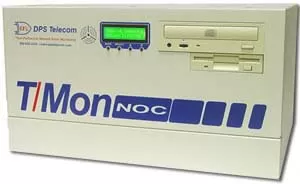Download our free SNMP White Paper. Featuring SNMP Expert Marshall DenHartog.
This guidebook has been created to give you the information you need to successfully implement SNMP-based alarm monitoring in your network.
1-800-693-0351
Have a specific question? Ask our team of expert engineers and get a specific answer!
Sign up for the next DPS Factory Training!

Whether you're new to our equipment or you've used it for years, DPS factory training is the best way to get more from your monitoring.
Reserve Your Seat Today
My company, DPS Telecom, manufactures T/Mon NOC, which can serve as an alarm master for your entire network or as a general protocol mediation solution.
T/Mon NOC can mediate alarms in 25 different protocols to SNMP ... and it can mediate alarms to other protocols, as well, like ASCII, DCP, E2A, TABS, TBOS and TL1.
T/Mon can do all this because of the power of its internal database. Remember how I said that the database makes protocol mediation possible? Well, T/Mon has one common database for all alarms. All alarms that T/Mon receives, whatever their source, are immediately written to one common format.
Once an alarm is in the T/Mon database, it's immediately convertible to SNMP or any other of T/Mon's 14 output protocols.
There's no simpler way to ensure that your equipment is SNMP-compatible. You don't have to hunt for the right MIBs. You don't have to worry about adapting your non-SNMP equipment on your own.
If your equipment is supported by T/Mon NOC, it will work with your SNMP manager. It's as simple as that.
Actually, this list just scratches the surface of T/Mon NOC's capabilities. For more information about what T/Mon NOC can do for you, see the T/Mon NOC Product Data Sheet.